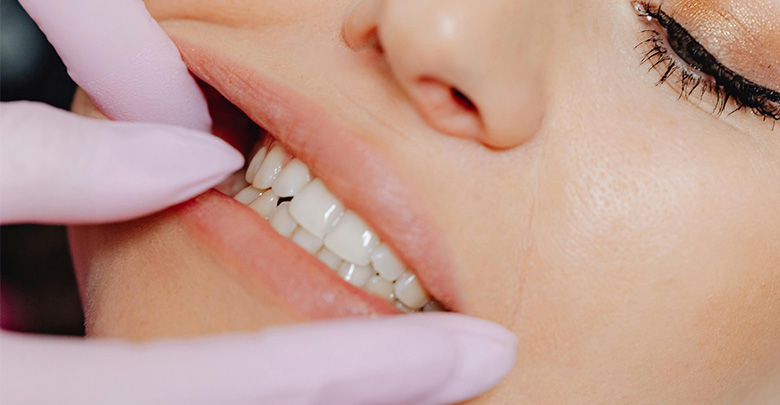
Congratulations on your pregnancy!
Congratulations on embarking on this incredible October journey. Your oral checkup will be just as important as your OB/GYN checkup. You need to take vitamins and supplements before giving birth, as well as a parenting plan and regular visits to your OB/GYN. However, many expectant mothers ignore oral health checks, which can easily affect their comfort during pregnancy and the health of their baby.
Theoretically, bacteria and inflammation caused by gum infection can enter the bloodstream and may interfere with the development of the baby. Ensuring oral health is a key step in a healthy full-term pregnancy. Common oral problems during pregnancy include:
- Gingivitis during pregnancy: It is the most common periodontal disease in pregnant women, mainly manifested by swollen gums, bleeding when brushing or biting hard objects, and pregnancy gingival tumors may form in places where the teeth are uneven or there is local irritation.
- Lesions of the crown: Due to changes in eating habits during pregnancy, such as increased appetite, increased number of desserts and snacks after meals, and acid reflux caused by vomiting during pregnancy, the surface of the teeth is corroded, which in turn causes crown lesions.
- Periodontitis caused by impacted teeth: A blind area is formed between the impacted tooth and the gums covering it, which can easily harbor dirt and breed bacteria, causing bad breath and caries. When the body’s resistance is reduced, inflammation often occurs.
- Oral ulcers: Diet, endocrine factors, mental state, lack of certain nutrients and other factors during pregnancy can cause oral ulcers. The pain is very severe during the attack and may even affect eating.
“Is it safe to see a dentist during pregnancy?” We often hear this question, and the answer is yes! Going to the dentist during pregnancy is not only safe, but also strongly recommended. Postponing necessary dental treatment is usually more dangerous than the treatment itself.
Oral problems are harmful to pregnant women and fetuses. Oral diseases can cause tooth pain, facial inflammation and swelling, and other problems, which seriously affect the daily life and nutrient absorption of pregnant women.
They may also cause serious systemic infections and even endanger the lives of pregnant women. Bacteria and inflammatory factors in the mouth of pregnant women can enter the placenta through the blood, affecting fetal development, inducing premature birth, low-birth weight fetuses, and even miscarriage. Especially in the case of patients with severe periodontitis, it has been confirmed to be one of the risk factors for premature birth.

The following are suggestions for expectant mothers:
Pre-pregnancy preparation
- Comprehensive examination: It is recommended that women go to the hospital for systematic oral health diagnosis and treatment 6 months before pregnancy.
- Timely treatment: For mild and moderate caries, the carious tissue can be directly removed and then the tooth can be filled; if deep caries do not involve the pulp, the tooth can be filled after being cleaned by the doctor; if pulpitis or apical periodontitis has been caused, root canal treatment is required. For wisdom teeth that are crooked and repeatedly inflamed, it is recommended to remove them before preparing for pregnancy
Pregnancy care
- Keep your mouth clean: Use a soft-bristled toothbrush and fluoride toothpaste every morning and evening, and brush your teeth for no less than 5 minutes each time. Rinse your mouth with clean water in time after meals, or use dental floss or interdental brushes to clean the gaps between teeth. Mouthwash can be used when necessary.
- Adjust your diet: Eat less sweets, acidic foods and carbonated drinks, and eat more foods rich in nutrients such as vitamins, calcium, phosphorus, etc., such as fresh vegetables and fruits, milk, fish, etc.
- Regular check-ups: At least 1-2 oral check-ups should be performed during pregnancy to detect and treat oral problems in a timely manner. It is generally recommended that it is safer in the second trimester, when the baby’s development is relatively stable and the treatment has little effect on the fetus.
Treatment precautions
- Choose the right time: Oral treatment should be avoided in the early and late stages of pregnancy to avoid miscarriage or premature birth.
- Use medications with caution: In the second trimester, consult a doctor before taking any medication, especially painkillers and antibiotics.
Finally, a reminder: Make sure to keep your oral health before getting pregnant! I wish you a happy pregnancy!
